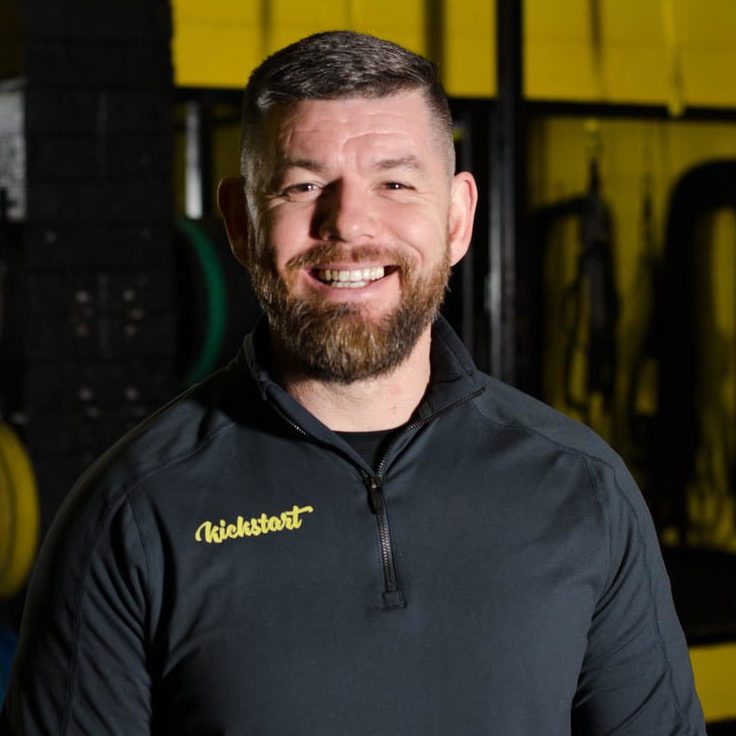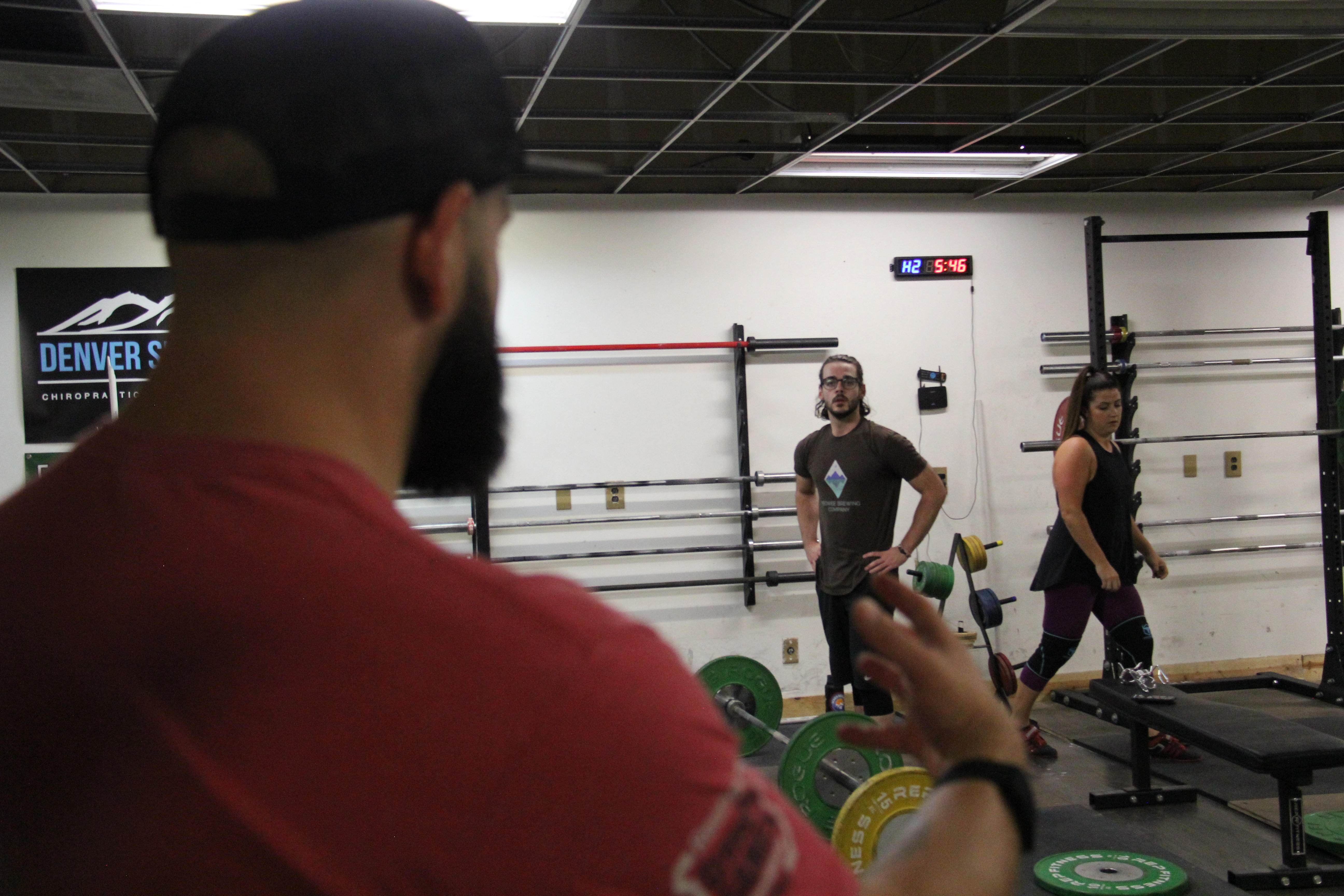How a Mentor Can Improve Your Coaching Business
Coach DevelopmentABOUT THE AUTHOR

Darren Dillon
Darren Dillon is the owner and director of Kickstart Fitness Ireland. Founded in 2010, Kickstart Fitness has grown from what was initially a bootcamp in a local park into what is now a center of excellence for TRX®️Training and functional training, and a high performance hub for strength and conditioning. Darren also serves as head of performance at Shamrock Rovers FC, working with and programming for the academy through to senior professional soccer players. He is also Ireland’s only official TRX®️ Master Trainer, delivering all the company’s education courses to the Irish fitness industry.
// Find a mentor that aligns with your coaching business
When I first started coaching, I didn’t have anyone to lean on as a mentor, as I wasn’t aware of who to turn to in the fitness industry. So it was a process of trial and error for a long time. I started to gravitate towards certain people online who were true masters of the craft, like Dan John and Mike Boyle, and the information coming from EXOS (then Athletes’ Performance) was also very helpful improving my coaching business.
Another person who appealed to me was TRX founder and former Navy SEAL Randy Hetrick. By this time, I was determined to open a TRX facility, which we didn’t have anywhere in Ireland. I started to be impressed by other thought leaders at TRX as well, such as Dan McDonogh, who is now the senior manager of performance training at Under Armour and Pete Holman, who invented the Rip Trainer. My first opportunity to meet all these people was the TRX Training Summit in Orlando in the summer of 2015.
Chris Frankel was another gentleman who soon came to my attention at this event. He didn’t have the public profile of some of his colleagues, so I didn’t know anything about him beforehand. But I was immediately impressed by how he could break down complex concepts and make them understandable and applicable. At this time, TRX was overhauling their education journey and was about to launch its Functional Training Course. Chris broke down the seven Foundational Movements and made it clear how mastering them would unlock hundreds of possible variations. It was a true lightbulb moment for me.
Dan McDonogh single handedly changed how I deliver information to my athletes. I was amazed by how he engages and energizes groups and controls the room, whether it’s 5, 50, or 500 people. By the end of each session he had people eating out of the palm of his hand. I came back to Dublin after the summit determined to present Chris’s rich information in Dan’s captivating style.
Some of the TRX leadership team later spent a week at my gym delivering the European Master Trainer’s Summit and I got to appreciate the high quality of what they were teaching to an even greater degree. Another string I added to my bow – attention to detail – came from Fraser Quelch’s meticulous approach at that summit. The game really changed for me as a coach and for Kickstart following these experiences. I recognized that we were miles from where we needed to be from an instruction standpoint and saw this as a big opportunity to improve.


Coaching business at scale
Less than six months after I moved into our gym premises, it was clear that I couldn’t continue coaching alone. We were simply growing too quickly. So I started looking around for the right person to help. I heard about this guy Gareth Francis, who’d been a youth boxing champion and was now coaching at the local boxing club. I asked my wife and sister to go and take one of his classes and report back on what they observed about Gareth and his teaching style – basically they were spying on him! They came back enthused and said he did a great job, even though he looked like he was only about 12 years old (don’t kill me if you’re reading this, mate – you’ve still got less gray in the beard than me).
I asked him to come over to Kickstart and he arrived so close to the start of one of my sessions that all we had time to do was say “Hello” and shake hands. He joined in the class and I was impressed by how fluidly he moved and how well he absorbed information. I offered him the job right after the class and he’s been my right-hand man ever since. We’ve also got two other wonderful coaches, Orlagh Dolan and Sean Quinn, who I trust to meet the high expectations our members have of us.
From the time I brought Gareth into the fold, I recognized that I could not possibly lead every class, so I needed others alongside me. To make sure we’re sharing the same message, are committed to delivering only our best, and are all bought in, it was vital that I mentor these other coaches and share with them what I’ve learned over the years at both the gym and Shamrock Rovers. It’s important for the sake of continuity that we continue to invest and re-invest in our people. If you’re coming to us as an individual, with your team, or with your group of fighters, you should see consistency and quality across the board at Kickstart, no matter who’s coaching any given session.
The 4 coaching Pillars
As human beings, we all need some sort of belief system to make sense of the world around us and our place in it. That extends to the gym environment. We need principles, values, and systems to guide us. So we developed a coaching philosophy around four pillars: good mindset, nutrition, movement, and recovery. Then we learned from the best on how to implement these. I want the other coaches to express their creativity and if they want to add a new course or design a program, we make space for that whenever possible.
We all have different personalities and everyone brings something different that benefits our team and our members. But I also want to make sure that all of the four pillars are present in every interaction, every plan, and with every individual client or group. The message has to be coherent and clear. I need to be sure that when I’m not around, our athletes are being coached safely and sensibly. These expectations are part of the mentoring process at Kickstart. I’m not only going away, finding new information, and bringing it back to the team, but also making sure they know how important it is to talk, carry themselves, and act in a certain way.
Leading from the front
Sometimes this is more of a formal thing, but I think a part of mentoring that’s largely overlooked is how you lead by example. This includes how I coach, for sure, but also my demeanor when I greet a new client, how I drive into and out of the parking lot, and the kind of conversations I have when I see people out and about. You never know when someone might be watching and as a leader, you have a responsibility to carry yourself well. People are often looking to you for guidance more than you might realize, and you can provide this outside of a traditional mentoring arrangement in how you speak and act.
Such leadership also involves displaying a hard work ethic at all times. Yes, you might have days when you’re under the weather or your energy level is low, but you have to try to bring your best regardless. I’m more than willing to put in 16 or 18 hour days when necessary, to take out the rubbish, and to listen to a client’s troubles even when I’m worn out and feel like I cannot have one more conversation. I want to show the other coaches and our members my willingness to serve them, which can be another kind of indirect mentoring. Maybe they’ll then go away and be more likely to help someone else out.
If you want to be a good mentor, you’re going to have to invest time and effort in your people. You need to be humble and not make it out like you know everything. And be receptive enough to listen to people who know more than you, so then you can share their lessons with those around you. I’m fortunate enough to now have five or six people who I can turn to with just about any question or issue. They’re always up for sharing their expertise and knowledge. In return, I’m only too happy to help others when they come to me for advice. I’m also fortunate to be part of one of the youngest and most dynamic coaching teams in Irish football at Shamrock Rovers. I feel blessed to be part of this phase of their career journey and their commitment to excellence is a constant wake-up call for me to be better.
A final word comes to mind on the topic of mentoring: passion. It’s all well and good to be knowledgeable, but people feed off of your energy and want to see a spark in you. If you’re passionate about what you do and care about your craft, they’ll come away wanting to love what they do as much as you love what you do. As a mentor, that might be the biggest gift you can give to someone.


Are you a better coach after reading this?
More coaches and athletes than ever are reading the TrainHeroic blog, and it’s our mission to support them with useful training & coaching content. If you found this article useful, please take a moment to share it on social media, engage with the author, and link to this article on your own blog or any forums you post on.
Be Your Best,
TrainHeroic Content Team
HEROIC SOCIAL
HEROIC SOCIAL
TRAINING LAB
Access the latest articles, reviews, and case studies from the top strength and conditioning minds in the TH Training Lab

